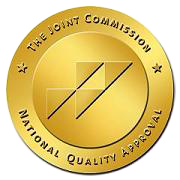What “Counts” as a Binge? Binge Eating Defined
Author:
Britt Berg, MS
When it comes to binge eating, the amount of food one consumes may not mean much. And whether someone calls it a “binge” doesn’t really matter. What matters is whether the individual feels distressed about how much food they have consumed. This is a significant factor to consider when it comes to binge eating.
What is bingeing?
When you think of a “binge,” many people might picture a scene where food wrappers are strewn across a room, empty food boxes line dirty tables, and crumbs cover every surface. In reality, people who struggle with binge eating can tell you that this image does not reflect their experiences. The truth? Bingeing looks very different for different people.
How do you define binge eating disorder?
Binge eating disorder (BED) is characterized by frequent episodes of overeating. People with BED regularly eat a larger amount than others would eat within the same timeframe — at least once a week over a period of three months. They often have trouble stopping the binge and feel physical or emotional discomfort after.
What is considered a binge?
When it comes to BED, a binge is often combined with feeling a lack of control, intense feelings of distress and three or more of the following behaviors:
- Eating more rapidly than normal
- Eating until feeling uncomfortably full
- Eating large amounts of food even when not feeling physically hungry
- Eating alone because of feelings of embarrassment stemming from how much one eats
- Feeling disgusted with oneself, depressed or guilty after eating
It’s important to note that overeating may look different to different people. What you consider a large meal may be considered normal by others. There is no true objective definition of overeating and society’s emphasis on “diet culture” further warps many people’s sense of normal eating. If you are reading this, you may be wondering, “Do I have binge eating disorder?”
Wondering if you have binge eating disorder? Take the quiz here.
If you’re feeling out of control or distressed about your eating patterns, it may be time to talk to a trained professional about bingeing. And we’re here to help. While binge eating disorder is the most common eating disorder, it is also treatable with specialized care from experienced professionals.
Heal from home with virtual binge eating disorder treatment
In our virtual binge eating treatment program, Eating Recovery At Home, the goal of treatment is to help you better identify your true values so you can experience a more meaningful, fulfilling life. The program can also help you find freedom from the shame and guilt you may experience related to food or your body. Since treatment takes place at home, you get to create a safe, healing environment where you’ll be able to address emotions, thoughts and behaviors related to binge eating and body image. You’ll meet with compassionate therapists and others as you learn and practice a consistent, mindful eating approach.
This piece was clinically reviewed by National Clinical Response Manager for Eating Recovery Center and Pathlight Mood and Anxiety Center Meredith Nisbet, MS, LMFT, CEDS-S (she/her) on October 10, 2023.
Read These Next:
Struggling with an eating disorder?
One conversation can make all the difference. Connect with us today.
Get Help NowConnect With Us



